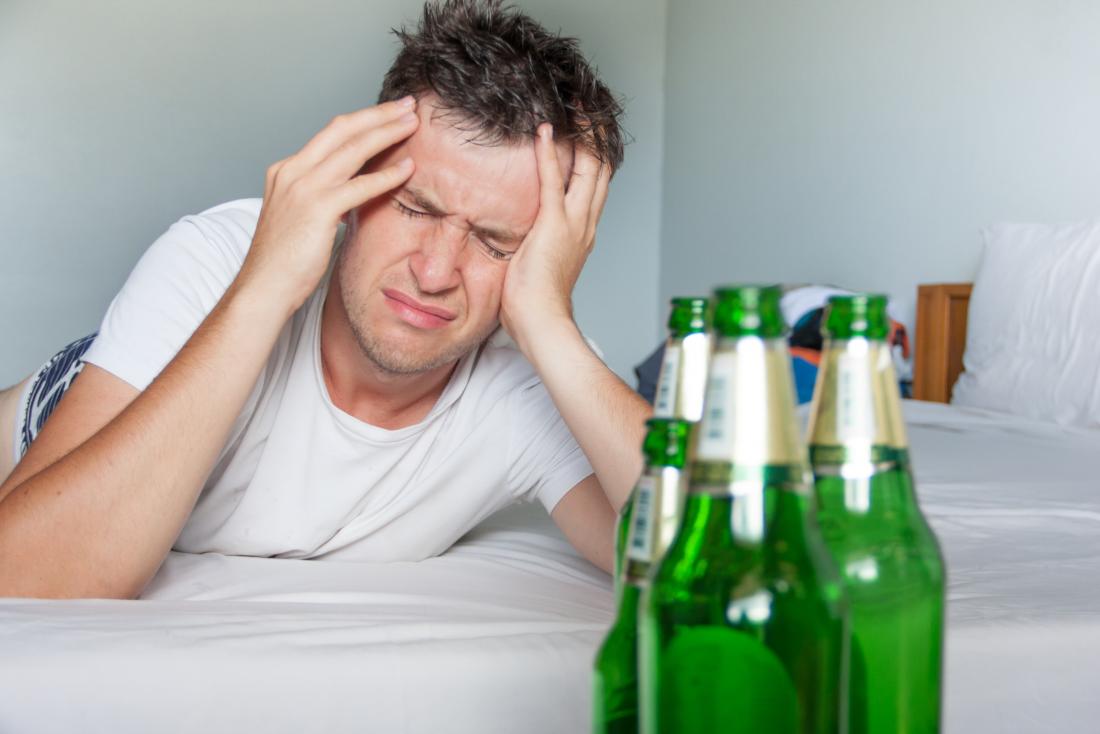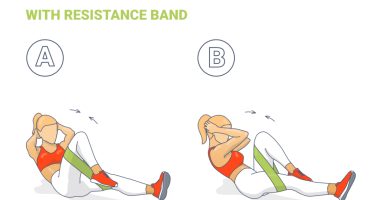What Causes Some People To Get Hangovers – Recently, I had a late night with some friends during a dinner party. Among the four of us, we may or may not have split more than three bottles of wine. (Look, stuff happens.)

As you can probably imagine, I was totally hungover the next day. Yet when I met up with one of my friends for brunch, he looked suspiciously bright-eyed and bushy-tailed. He informed me he had even gone for a run early that morning. (In contrast, I had spent the morning sprawled on the couch eating leftover Doritos out of the bowl I had put out the night before.)
“How?” I asked.
“I don’t get hangovers,” he answered, cheerfully.
“That can’t be right,” I said. “Never?”
“It’s true,” he chirped. “I’ve literally never had a hangover in my life, doesn’t matter how much I drink.”
I was skeptical, but it turns out my friend might not just be a liar with his pants on fire. “Some people are able to metabolize [alcohol] quite well and quickly,” says Amy Shapiro, MS, RD, founder of Real Nutrition NYC. Lucky them. So, what causes hangovers for the rest of us, you may ask? Read on to learn why you might be more prone to getting one and how to avoid it at all costs.
What Causes Some People To Get Hangovers – common symptoms?
Of course, we may know from personal experience that a hangover equates to an entire day spent in our bed watching show reruns and attempting to bring ourselves back to life. However, if you’re looking for a textbook definition, the National Institute on Alcohol Abuse and Alcoholism states that common symptoms of a hangover include fatigue, weakness, thirst, headache, muscle aches, nausea, stomach pain, vertigo, sensitivity to light and sound, anxiety, irritability, sweating, and increased blood pressure.
So, what actually causes a hangover?
Before we dive into why some people don’t get hangovers and others do, it might help to understand what causes hangovers in the first place. The simplified version: Your liver enzymes break down all the alcohol you drink into acetaldehyde, a toxin your body then needs to get rid of quickly, Shapiro says. She says those liver enzymes can be more plentiful (and thus more effective) in some people, and less plentiful in others. For the less-than-blessed, this means your body just isn’t as efficient at getting rid of the acetaldehyde. It hangs around longer in your body, leading to the telltale pounding head, dry mouth, and wicked-bad nausea of a hangover that we all know and hate.
Why do some people not get hangovers?
Genetics is impotant
As for why some people don’t seem to get hangovers…a lot of it comes down to genetics, says Shapiro. “They’re able to break down the byproducts, genetically and metabolically, so that it doesn’t affect them the next day,” she says. This is backed by research: In 2014, researchers looked at data from 4,000 people from Australia’s Twin Registry (basically, a database of volunteers who’ve been selected for their medical history to participate in research, according to the U.S. National Library of Medicine) and found that “genetic factors accounted for 45 percent of the difference in hangover frequency in women and 40 percent in men.”
Dehydration is a big part of it
The aforementioned study found that genetics only accounted for about half of the only reason why some people don’t get hungover. There are some other things at play, too. Shapiro adds that alcohol is a diuretic, and that dehydration also plays a big role in your hangover. When people drink, they’re often not rehydrating themselves properly. Remember, most experts recommend you drink as much water as possible when you’re hitting the booze—the general rule is one glass of water for every glass of alcohol you imbibe.
Moderation is key
It could also be simple as my friend being smarter about his intake than I was. In a 2015 study presented at the European College of Neuropsychopharmacology, researchers asked 789 Canadian students about their drinking habits and found that the ones who reported never getting hangovers simply drank less than their unluckier counterparts. Seems obvious, but still something important to point out. (Moderate drinking for women, FYI, is no more than one drink per day.)
Gender might play a role
It’s also possible that women can get hit harder by hangovers because women metabolize alcohol differently (which gives women generally a lower alcohol tolerance than men), though Shapiro cautions that she hasn’t seen any definitive research on gender. She thinks genetics are a stronger influence than potential gender differences.
Tolerance can differ from person to person
Plus, everyone has a different tolerance for symptoms, Shapiro says. You know how you may develop a cold that knocks you off your feet for five days, while your best friend can catch the same cold and be up and running within 24 hours? The same kind of thing can apply to drinking. It’s possible my friend wakes up with a slight headache and simply powers through his day, thus thinking he’s not really experiencing a hangover, whereas I could develop the same headache and be laid out in bed all day.
What to know if you’re *that* person
Even if you are a member of the no-hangovers club, Shapiro has a big reminder for you: Alcohol is still a toxin, and overdoing it is not a good idea, regardless of how well you might feel the next day. Just because you don’t get hangovers doesn’t mean that drinking is a healthy habit.
Are there any downsides to not getting a hangover?
Like most things in life, drinking in moderation is important. Although it may feel like a blessing to not get a hangover ever, as Shapiro says, alcohol is a toxin that can have adverse effects on the body. Drinking too much can lead to life-long, alcohol-associated organ damage, preventing healthy brain, heart, or liver function, to name a few. According to the National Institute on Alcohol Abuse and Alcoholism, alcohol can interfere with the brain’s communication pathways, disrupt mood, lead to high blood pressure, and lead to chronic inflammation of the liver.
Tips for getting rid of or avoiding a hangover
- Stay well-hydrated before drinking
- Avoid drinking on an empty stomach
- Drink plenty of fluids after drinking
- Avoid greasy foods
- Consume foods and drinks with potassium and electrolytes
- Walk off your hangover
So, for the rest of us who do occasionally get hangovers, making sure that you’re staying hydrated and fueling up beforehand (no drinking on an empty stomach!) will go a long way in making sure you don’t drink too much as well helping you feel better in the morning. And for those moments where girls’ night gets the best of you or as the partying gets more difficult as you get older…don’t forget to rehydrate with a glass of water or coconut water.
What should I eat after drinking alcohol?
Shapiro also recommends resisting the urge to reach for something greasy—it may taste ah-mazing in the moment but will just lead to your blood sugar crashing later on. Instead, opt for a fruit smoothie, toast with eggs and avocado, oatmeal, or a whole-wheat bagel with cream cheese. The potassium and electrolytes in each of these options will keep you full and your blood sugar levels steady, giving you the energy you need to meet your girls for brunch later on (or to stay awake and binge-watch an entire season of your favorite Netflix show. ALSO READ: 8 Factors That Could Make You More Prone to Dehydration







